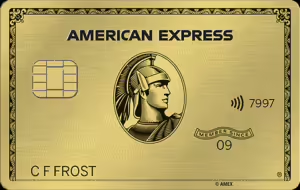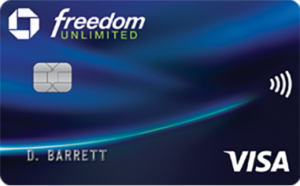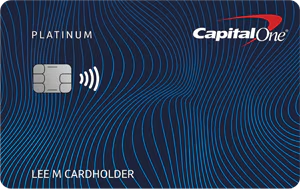This article features products and services we’re compensated for. Author opinions are independent, but compensation may influence placement. We don’t cover all options. Learn more about how we make money.



What do you need to consider when selecting a credit card?
When selecting a credit card, there are several important factors to consider:
- Interest Rate (APR): Look at the Annual Percentage Rate (APR) which is the interest rate you will pay if you carry a balance. Some cards offer a low introductory APR that increases after a certain period.
- Fees: Understand the different fees that may apply, including annual fees, late payment fees, balance transfer fees, and foreign transaction fees.
- Credit Limit: This is the maximum amount you can charge on the card. A higher limit can be beneficial for your credit score as long as you don’t overspend.
- Rewards and Benefits: Many cards offer rewards like cash back, points, or miles. Consider how these rewards align with your spending habits and preferences.
- Introductory Offers: Some cards offer welcome bonuses or introductory offers, such as 0% APR for a specific period. These can be advantageous but be aware of what the terms are after the introductory period ends.
- Credit Score Requirements: Each card has different credit score requirements. Make sure you meet the credit score requirement for the card you’re interested in.
- Payment Flexibility: Look into the card issuer’s payment options and grace periods. This can affect how and when you need to pay your bill.
- Customer Service: Good customer service can be invaluable, especially if you encounter issues with your card or account.
- Security Features: Check what security features are offered, such as fraud protection and alerts for unusual activity.
- Balance Transfer Options: If you’re considering transferring a balance from another card, look for cards with low or no fees for balance transfers and a low APR.
- Issuer Reputation: Research the reputation of the card issuer regarding customer service, reliability, and overall satisfaction.
- Additional Perks: Some cards come with additional benefits like travel insurance, extended warranties, or access to exclusive events.
- Credit Building and Reporting: If you’re looking to build credit, ensure that the card reports to all three major credit bureaus.
- Terms and Conditions: Always read the fine print to understand all the terms and conditions associated with the card.
It’s important to choose a credit card that fits your financial situation and spending habits. It’s also advisable to regularly review your credit card needs as they can change over time.
Maximizing Credit Card Rewards: Turning Spending into Earning
Credit cards aren’t just for spending; they can be powerful tools for earning money, too. With the right strategy, you can make your credit card work for you. Here’s how:
- Choose the Right Card: Start by selecting a credit card that offers rewards best suited to your lifestyle. If you travel frequently, consider a card that offers generous miles. For everyday purchases, a card with a high cashback rate on groceries and gas might be ideal.
- Understand the Reward System: Familiarize yourself with how your credit card rewards work. Is there a cash back program, points system, or travel miles? Knowing this will help you maximize benefits.
- Align Spending with Reward Categories: If your card offers extra points or cash back in specific categories, like dining or entertainment, try to use it predominantly for those types of purchases.
- Pay Attention to Sign-up Bonuses: Many cards offer sign-up bonuses that can be incredibly lucrative. However, these often require you to spend a certain amount within the first few months. Plan your spending so you can hit these targets without overspending.
- Use It for Everyday Purchases: Use your credit card for regular expenses like groceries, gas, and bills. This way, you earn rewards on money you would be spending anyway.
- Pay Balances in Full: To truly earn from your credit card, avoid carrying a balance. Interest fees can quickly outweigh the rewards earned, so it’s crucial to pay off your card each month.
- Take Advantage of Special Offers: Keep an eye out for special promotions or bonus categories that offer additional rewards for a limited time.
- Redeem Rewards Wisely: When it comes time to redeem your rewards, choose options that offer the best value. For instance, some cards offer greater value when points are redeemed for travel rather than cash.
- Consider Multiple Cards: Sometimes, combining rewards from multiple cards can maximize your earnings. For example, one card for groceries and another for gas.
- Stay Informed and Adjust: Credit card rewards programs can change. Stay informed about your card’s terms and adapt your strategy as needed.
By thoughtfully using your credit card, you can transform it from a simple payment tool into a rewarding investment in your daily spending.
Top 10 FAQs About Applying for a Credit Card
To apply for a credit card, research and choose a card, gather required documents like your social security number and income details, complete the application online or in person, and await approval. Once approved, review the card’s terms and activate it. Use the card responsibly to build credit and avoid high interest charges.
The credit score needed to qualify for a credit card varies depending on the card and issuer. Generally, a good or excellent credit score of 700 or higher increases your chances of approval for most credit cards. Some cards designed for building credit may accept lower scores. Review the card’s eligibility criteria for specific requirements.
Credit card approval depends on various factors:
▬ Credit Score: A higher score increases your chances.
▬ Income: Sufficient income is necessary to repay debts.
▬ Credit History: A positive history with on-time payments helps.
▬ Debt-to-Income Ratio: Lower ratios show financial stability.
▬ Employment: A steady job enhances your eligibility.
Each issuer has specific criteria, so check their requirements.
Various types of credit cards are available, including rewards cards, cashback cards, travel cards, secured cards, and balance transfer cards. The best card for you depends on your spending habits and financial goals. For rewards, choose a card aligned with your preferences, while those building credit may opt for secured cards.
Interest rates and Annual Percentage Rates (APRs) represent the cost of borrowing on a credit card. The interest rate is the rate at which your outstanding balance accumulates interest, expressed as a percentage. The APR is the total cost of borrowing, including interest and fees, expressed as an annual rate. It’s important to pay your balance in full each month to avoid accruing interest.
Credit cards may have several associated fees, including annual fees for card ownership, late payment fees for missing payment deadlines, over-limit fees if you exceed your credit limit, balance transfer fees for transferring balances, cash advance fees for getting cash from the card, foreign transaction fees for international purchases, and returned payment fees for bounced payments. It’s important to be aware of these potential charges when using a credit card.
To boost your credit card approval odds:
▬ Maintain a good credit score through on-time payments.
▬ Keep credit utilization low (below 30%).
▬ Apply for cards matching your credit profile.
▬ Ensure a stable income.
▬ If you have limited or poor credit, consider secured or starter cards.
▬ Rectify any inaccuracies in your credit report.
A credit limit is the maximum amount you can borrow on a credit card. It is determined by the card issuer based on various factors, including your credit score, income, credit history, and overall financial health. Responsible credit card use can lead to credit limit increases over time.
Yes, credit cards often come with benefits and rewards. These can include cashback, travel rewards, airline miles, hotel discounts, purchase protection, extended warranties, and access to exclusive events. The specific benefits vary by card, so it’s important to choose one that aligns with your spending habits and preferences.
To protect yourself from credit card fraud and identity theft, it’s crucial to maintain vigilance. Regularly monitor your credit card statements, using secure and trusted websites for online transactions. Set up account alerts for any unusual or suspicious activity and keep your card and PIN safe from prying eyes. Shred documents containing sensitive information, be cautious when asked for personal details via email or phone, and use strong, unique passwords. Consider identity theft protection services and promptly report lost or stolen cards. Additionally, monitor your credit reports annually for any discrepancies that may signal identity theft. These proactive steps can help safeguard your financial and personal information.
Editorial Note: This content is neither provided nor commissioned by the credit card issuer. All opinions, analyses, reviews, or recommendations expressed in this article are solely those of the author and may not have been reviewed, approved, or otherwise endorsed by the credit card issuer. This site may receive compensation through a partnership with the credit card issuer.

